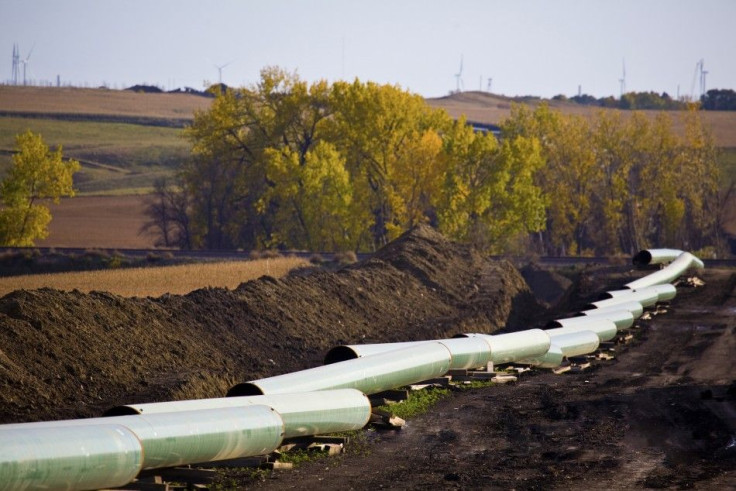Nebraska Supreme Court Tosses Out Keystone XL Suit

A constitutional challenge in Nebraskathat could derail the Keystone XL Pipeline's progress on its trans-continental route suffered a set back in court.
Nebraska landowners challenging the constitutionality of their state's laws dealing with the route and pending approval of the Keystone XL Pipeline will have to pin their hopes on Nebraska's lower district court, as its Supreme Court decided it will not hear their case.
Application to commence original action denied, simply said the court, reported the Lincoln Journal Star in Nebraska.
The Lancaster County District Court is expected to announce whether it will hear the case in the next 30 days, the newspaper reported.
Landowners are suing Gov. Dave Heineman, treasurer Don Stenburg and Department of Environmental Quality Director Mike Linder. The suit alleged Heineman could, under a law passed in this year's legislative session, approve thw pipeline project on his own authority, something the state legislature in a previous session said was reserved for a special commission.
The fear, said attorney David Domina, who is representing the three landowners leading the suit, is that the governor could approve the project within his state, enforce eminent domain to expropriate property owners, and establish the pipeline's route without having prior approval from the White House.
Domina spoke to the IBTimes in a previous interview.
TransCanada, the pipeline's builder, needs a presidential permit in order to build the controversial pipeline over the U.S.-Canada border. The project has pitched congressional Republicans against Democrats and has become a prime flashpoint in the nation's presidential campaign debate on energy and energy security.
Proponents claim the added fuels the pipeline would carry would aide in the United States' goal of energy self-sufficiency, while environmentalists argue the pipeline will cause damaging pollution and increase the country's greenhouse gas emissions.
President Barack Obama killed the project earlier this year when he refused to approve it, but later in February announced he was supportive of TransCanada's goal of building the southern portion of the pipeline from Cushing, Oklahoma, to the Texas Gulf Coast.
If completed, the 1,700-mile pipeline will stretch from Alberta, Canada, to the Gulf of Mexico.
© Copyright IBTimes 2024. All rights reserved.





















